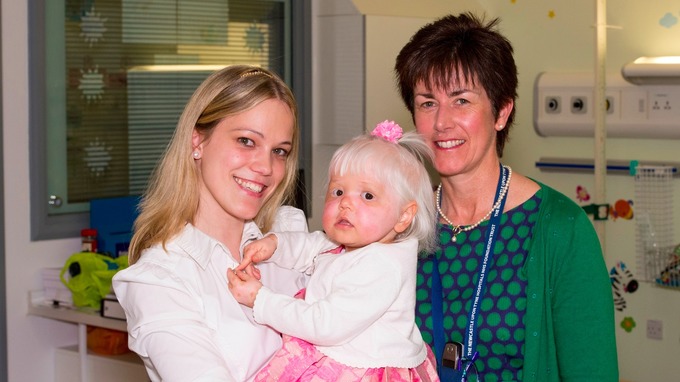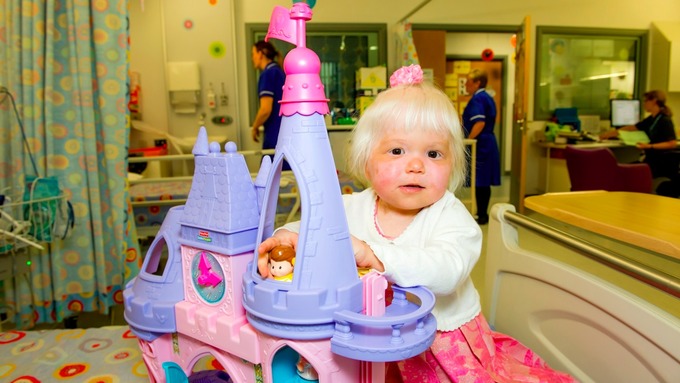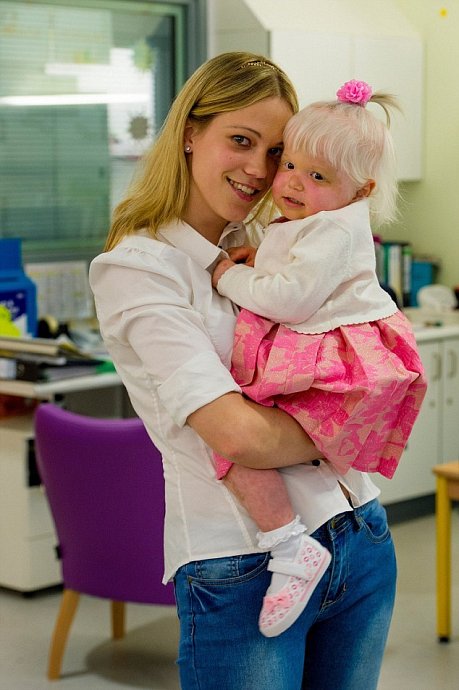Our doctors save life of little bubble girl
Kristina Vukolova
British doctors using a pioneering technique have cured a little girl kept in a ‘bubble unit’ because she had no immune system. Kristina Vukolova was diagnosed with severe combined immunodeficiency when she was just six months old. Babies left untreated usually die before their first birthday. Kristina was given a standard stem-cell transplant using placental-cord blood from a donor at Newcastle’s Great North Children’s Hospital.
She spent three months in the sterile bubble unit because even a cold could have killed her. Kristina was discharged from hospital but a few months later the donor cells started to attack her. Doctors asked Kristina’s mother, Jekaterina, to agree to a method that had not been tried before.

Blood stem cells and ‘mature’ white blood cells were taken from Jekaterina and transplanted into her daughter. Some of the white cells had the potential to trigger a potentially fatal disease, but the medical team removed them with antibodies and a machine using magnets.
After six months in the bubble unit – which is supported by the charity The Bubble Foundation – Kristina was strong enough to leave. Details have only just been released now she is a happy, healthy four-year-old. Her mother said: ‘I can’t thank the Newcastle team enough.’

External Links:
Professor Andrew Cant, a world-leading Consultant in Paediatric Immunology, said children with immune deficiencies are often a forgotten group:
“We need funding through The Bubble Foundation to help research conditions like Kristina’s further still. Children with Primary Immune Deficiencies are often a rather forgotten group, even though around one in every 500 babies is born with some form of immune deficiency. It’s my vision that all children with this condition will be diagnosed as small babies, we’ll have treatment that is 100 per cent successful, 100 per cent of the time; less toxic and less demanding than it is today.
We’ve come a long way, but there’s still a huge amount to do.”
– PROFESSOR ANDREW CANT

